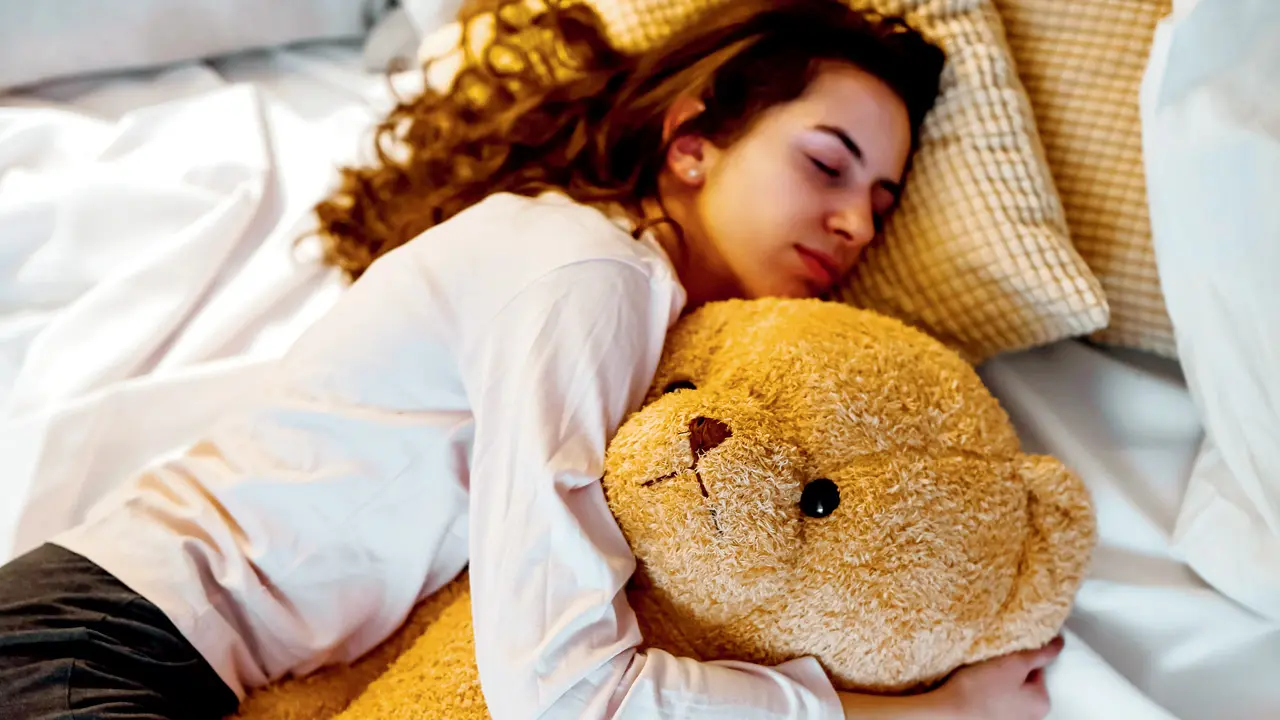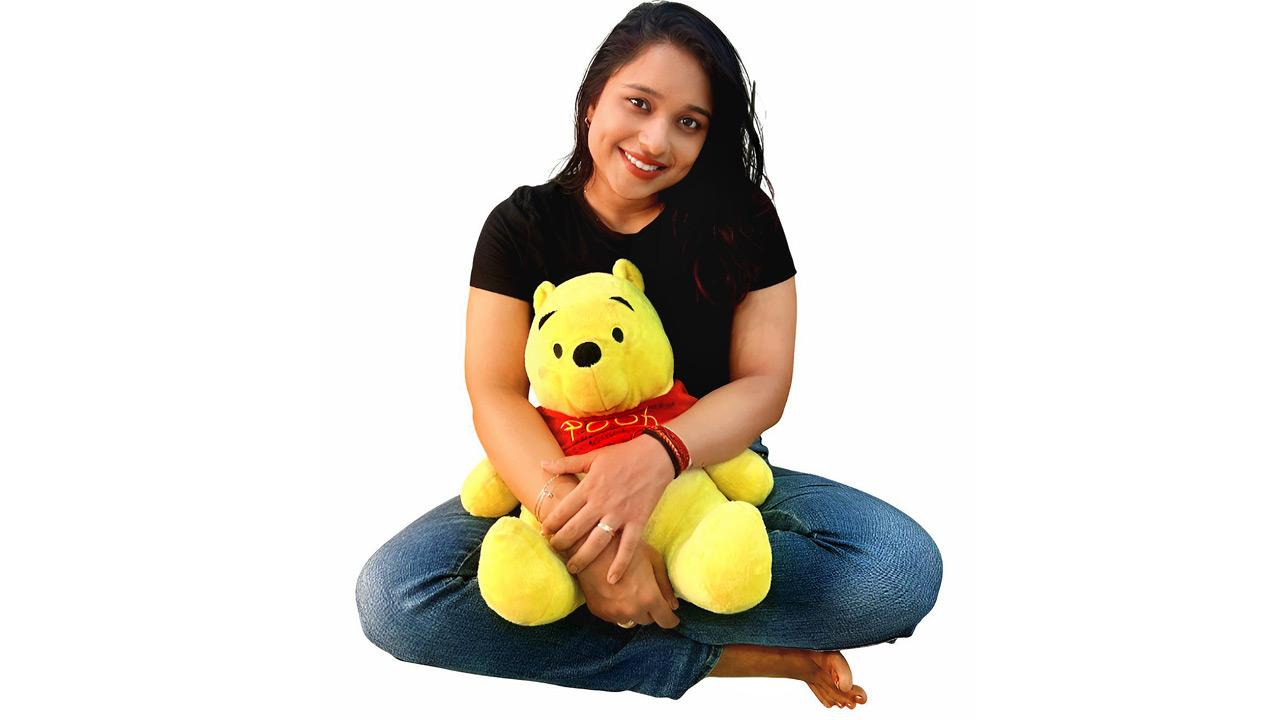Studies reveal that nearly 20-30 per cent of adults sleep with soft toys or have a favourite stuffed animal. But does snuggling with your stuffy improve the quality of your sleep?

Cuddling soft toys helps release calming hormones. REPRESENTATION PIC/ISTOCK
If you adore fitness, you have one thing in common with Sunny Deol. If you also adore teddy bears, you have two. And it’s the latter that would probably strike most readers as unexpected, even if it’s also what more people have in common with the hulking star than his strapping physique. So, what is it about soft toys that contribute to their age-defying, stereotype-shattering appeal?

Actor Sunny Deol with his soft toys. File pics
What makes them such comforting bedfellows? As Dr Nahid Dave, psychiatrist at Thought Matters, explains, “As children grow up, they turn to a transitional object — typically a preferred toy — that helps them to transition from their dependency on the mother or the primary caregiver to self-soothing. As we grow older, we learn to soothe our own emotions. But we also develop different attachment styles and different personalities. For some people, the presence of a transitional object offers a sense of calmness.”

Simran Shinde associates soft toys with child hood memories
A cuddle for your soul
Soft toys do more than just look cute; they act as grounding objects, triggering the release of calming hormones, and offering a sense of security and emotional support. For some, the presence of these toys can reduce anxiety and stress, and induce relaxation, thus contributing to more restful sleep. “Biologically, hugging, cuddling, or stroking a soft toy can activate the body’s parasympathetic nervous system, which helps calm the heart rate. But any form of attachment triggers a dopamine kick, as well as a surge of serotonin when you are in the presence of the person or object. Over time, these hormones are replaced by oxytocin, which creates a sense of security,” says Dr Dave. For 33-year-old media professional Chandreyi Bandyopadhyay, the presence of a beloved soft toy helps to calm her down during difficult times. “In addition to the physical solace of cuddling them, I look to them for their constancy and companionship when I feel unheard or not understood. In many ways, it feels as though they will never let me down,” she says.

Chandreyi Bandyopadhyay
Dr Dave notes that a marked preference for a soft toy is more common in individuals with an anxious attachment style. “They are constantly afraid of abandonment or they’ve had experiences where they’ve trusted somebody who has left them for some reason. The toys offer a sense of permanence; a sense that they will not be abandoned. Similarly, individuals with an avoidant attachment style, who shy away from all forms of closeness, may still unconsciously have the desire to be held and to be close to somebody. So, in that case, you know, the stuffed animal or a transitional object helps to fulfil that need,” she clarifies.
The warm fuzzies

Dr Nahid Dave
“My soft toys offer their silent and constant presence, which feels very comforting. To me, their companionship comes without any judgements. After a day of adult responsibilities, embracing them is a simple and sweet reminder to unwind, de-stress and briefly reconnect with my child-like self and return to a simpler time of my life,” explains 23-year-old finance professional, Simran Shinde. For Shinde, the toys are also time capsules, marking several emotions and different phases of her life. Her current assortment includes teddy-bears that she was given at the age of four, as well as other newer additions that she bought during different phases of her life, including while on holidays. Like Shinde, many people associate soft toys with positive childhood memories, which affords them a sense of emotional security, Dr Dave elaborates. The physical softness and warmth of a stuffed animal can also afford feelings of sensory wellbeing contributing to more restful sleep.
Although Dr Dave says that it isn’t common, an overreliance on soft toys can become a problem if you are unable to sleep or function in that presence, or need one particular toy to feel yourself. “This could mean that you are depending more on that object than what it provides. However, I don’t see a problem with using a stuffed animal or a weighted blanket or something to calm or soothe yourself at bedtime. Such objects are just a psychological additive to improve the quality of your sleep,” she concludes.
 Subscribe today by clicking the link and stay updated with the latest news!" Click here!
Subscribe today by clicking the link and stay updated with the latest news!" Click here!








